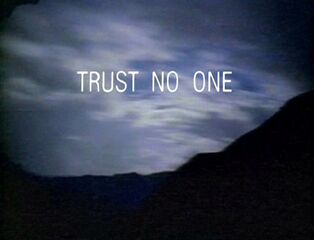Given the sheer oddity of Dee and Kelley’s story (two men talking to angels!?) it’s no surprise that wild tales grew up around them. But, I want to write something historically accurate so I’ve been slowly winnowing out the facts from the legends. The further I go the stranger it gets, and Stephenie Woolterton’s post on bias in historical research reminds me that “facts” are always filtered through those relating them.

I’ve found two broad interpretations of Dee and Kelley’s partnership:
- Kelley was a fraud, full stop. Espoused mostly by Dee’s biographers, it makes sense at first glance but on closer examination seems inadequate. Their partnership went on for 7 years – if it was a con Kelley deserves credit as the best actor/storyteller of his age! It also ignores Kelley’s repeated attempts to leave Dee’s employment and his doubts about the holiness/usefulness of the spiritual messages. Why question it if he had Dee fooled? Why start the fraud in the first place?
- Kelley channeled something outside himself and the seances can be taken at face value. A minority opinion embraced by some modern-day occultists, it sidesteps their work’s resemblance to earlier magical systems (even Kelley points this out) and the English grammar and structure of the alleged “angelic” language.
If the historians can’t be trusted, the primary sources aren’t much better. Save a few letters and other miscellanea we only have Dee’s account of 1582-1589 and he’s not completely reliable.
Dee’s “private” diary was written in the margins of almanacs and wasn’t all that private. Erasures suggest that Kelley edited it with Dee’s knowledge and one can infer Dee expected that it might be read by others. Susan Bassnett points out that Dee left out significant information about Kelley’s stepchildren and brother – who and what else did he leave out, and why?
The spiritual diaries appear to be verbatim transcripts of Dee and Kelley’s seances, but they are incomplete. Not everything has survived to the present, and some pages were destroyed before their importance was known. We only have what Kelley saw fit to share with Dee and have little notion of any communications he received/created without Dee’s direction.
Indeed, very little is certain about Kelley at all. His early life is a series of rumors (did he raise the dead? Did he lose one ear, both ears, or no ears for forgery?) and almost everything else is from Dee’s diaries. He often comes off as a selfish, temper tantrum-throwing brat but given their tumultuous relationship it’s fair to say Dee had his own biases.
And here I show my own. I think Sledge comes closest to the truth when he suggests that Dee and Kelley’s work was the product of a mix of fraud, mental illness, and self-hypnosis. My hard-headed modern mind can’t accept a supernatural explanation but I doubt Kelley came up with 7 years worth of prophecies and magic on his own. I also suspect the more heretical material wouldn’t have shocked him so if he’d consciously invented it.
Dee pushed Kelley into frequent altered states and documented the “spirits’” every word. Is it unimaginable that with Dee’s constant encouragement Kelley might start to believe his own lies, but be resentful and angry from overwork? In this sense I don’t think Kelley was the cardboard-cutout con artist put forth by Dee’s biographers. Far more likely that Enochian magic came out of a shared madness between the two, with Kelley’s delusions directed by Dee’s obsessions.
In the end, does any of this really matter? I’m writing fiction, after all, and am free to make up what I can’t prove. Much as my inner history geek wants to know “the truth” I have to accept that reality is often subjective – one of the themes of my novel. Just because a thing isn’t objectively real doesn’t make it any less relevant.
Selected sources:
Bassnett, S. (2006). Absent Presences: Edward Kelley’s Family in the Writings of John Dee. In John Dee: Interdisciplinary Studies in English Renaissance Thought (pp. 285–294). Dordrecht: Springer.
Laycock, D. C., Kelly, E., Dee, D. J., & Duquette, L. M. (2001). The Complete Enochian Dictionary: A Dictionary of the Angelic Language As Revealed to Dr. John Dee and Edward Kelley. Weiser.
Sledge, J. J. (2010). Between Loagaeth and Cosening: Towards an Etiology of John Dee’s Spirit Diaries. Aries, 10(1), 1–35.
